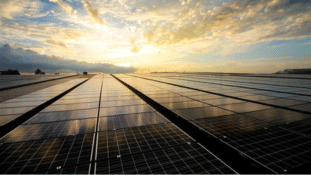

BLOG
Energy Procurement: What you need to know
5/01/23
One of the most important pieces to effective energy management is your energy procurement strategy. Particularly crucial for energy-intensive businesses seeking to mitigate risks and secure competitive pricing, a well-crafted procurement strategy ensures that your chosen suppliers and services align seamlessly with your budget, enhance operational efficiency, and resonate with your overarching vision.
What is an Energy Procurement Strategy?
An energy procurement strategy involves determining the amount of energy your business requires and finding the right supplier and contracts to meet those needs. This strategy is helpful for all types of companies, especially those that use a lot of energy and need to minimize risks and find the best prices. It ensures that your chosen suppliers and services fit your budget, provide maximum efficiency, and align with your company’s objectives. This responsibility can be handled internally by assigning a specific employee, or you can opt to enlist the services of a business energy broker.
An energy procurement strategy should outline the following components:
- Impact on Operational Costs: When done correctly, energy procurement reduces operational costs and allows seasonal cost forecasting, benefiting the company’s overall financial performance.
- Influence on Sustainability Goals: Effective energy procurement strategies aid businesses in transitioning to renewables, reducing reliance on fossil fuels, and meeting sustainability goals.
- Regulatory Compliance Considerations: Adhering to energy regulations is vital for business continuity. Effective procurement practices mitigate compliance risks.
Why Work with an Energy Procurement Consultant?
The advantages of engaging with an energy procurement company are many and include the following:
Developing Robust Energy Procurement Strategies
It’s not just about securing the lowest price; it’s about aligning with the optimal suppliers tailored to your business’s specific energy requirements. Through practical strategies, you gain control over contract terms and expenses.
Understanding Available Options
Whether overwhelmed by numerous choices or unaware of alternatives due to limited information, selecting the right energy providers can take time and effort. An energy procurement service provider assists in comparing options and facilitating informed decisions.
Lowering Energy Costs
Collaborating with energy procurement companies primarily aims to reduce electricity, gas, and renewable resource expenses. While curtailing usage might offer minor savings, efficient procurement practices can significantly reduce costs without affecting day-to-day operations.
Enhancing Load Forecasting
By leveraging the expertise of an energy procurement company, your business can mitigate risks and enhance predictions concerning energy consumption and associated costs.
Regaining Control from Vendors
Rather than passively adhering to the demands of energy providers, energy procurement companies simplify the vendor selection process and contract negotiations, empowering your business to assert control over procurement decisions.

Developing an Effective Energy Procurement Strategy
Developing an effective energy procurement strategy involves considering several key factors:
Strategic Planning and Risk Assessment
Successful procurement in the power generation sector starts with strategic planning and thorough risk assessment. Project managers can devise strategies to mitigate risks and facilitate a seamless procurement process.
Supplier Selection and Evaluation
Selecting reliable, experienced suppliers is crucial. All suppliers must meet technical specifications, quality standards, and deadlines. Thorough evaluation ensures confidence in their financial stability and past performance.
Compliance with Environmental Standards
Power generation projects need to adhere to numerous regulatory and environmental standards, which are both legally required and ethically crucial. This involves conducting environmental impact assessments and adhering to safety protocols.
Effective Cost Management
Effective cost management is key to successful energy procurement; as we all know, budget issues can lead to severe project delays on top of financial concerns. Thorough cost forecasting and monitoring tactics should mitigate the risk of going over budget. Detailed cost breakdowns and contingency planning can also help keep costs in check.

Trends to Consider
Businesses must adapt to evolving energy procurement trends, such as the rise of renewable energy and advancements in procurement tech. Proactive measures and innovative solutions can optimize energy procurement, leading to cost savings, enhanced sustainability, and greater resilience.
1. Renewable Energy Procurement
Businesses are buying more renewable energy as they focus on sustainability. They’re leaning towards long-term agreements with renewable energy developers and using virtual contracts to purchase renewable energy credits from afar. New finance models like green bonds and energy-as-a-service arrangements are also being adopted.
2. Technological Innovations
Tech is changing how we buy energy, making it faster and more precise. AI and machine learning help analyze market data and plan buying strategies instantly. Blockchain is being looked at to make renewable energy transactions clear and easy to follow. IoT devices help monitor and control energy use from afar, making it more efficient.
While energy procurement is a complex topic, we hope this guide helps you find an effective solution for your business. At Crete United, our teams are available to help from the assessment stage through project completion. Contact us to see if we could be a fit for your business.





